0203 193 8888
0203 193 8888
More and more homeowners are choosing sustainable energy solutions, not only to reduce their carbon footprint but also to save on electricity bills. Solar panels are becoming a top choice in this eco-friendly shift. By converting the sun’s energy into electricity, residential solar panels provide an efficient, green, and cost-effective way to power your home. Whether it’s for running appliances, lighting, or heating, these panels are changing how energy is used in homes across the UK. Plus, the aesthetic appeal of solar panels can increase your property’s value, making it a smart investment both for the environment and your finances. Embracing solar energy at home is a step towards a greener future!
Residential solar panels are an incredible example of modern engineering, allowing homeowners to harness the vast energy of the sun. Here’s a simple breakdown of how it works:
1. Solar Cell Absorption: Each solar panel has several solar cells made from semiconductor materials like silicon. When sunlight hits these cells, it excites electrons inside them.
2. Conversion to Direct Current (DC): The movement of the excited electrons creates a direct current (DC) across the solar cell.
3. Transformation to Alternating Current (AC): Since most homes use alternating current (AC), an inverter is used to convert the DC into usable AC.
4. Powering Your Home: The converted electricity flows into your home’s electrical system, powering appliances, lights, and more.
5. Excess Energy Storage: On sunny days, your panels might produce more power than your home needs. This extra energy can be stored in batteries for later use or sent back to the grid, depending on your setup.
Get In Touch 0203 193 8888
0203 193 8888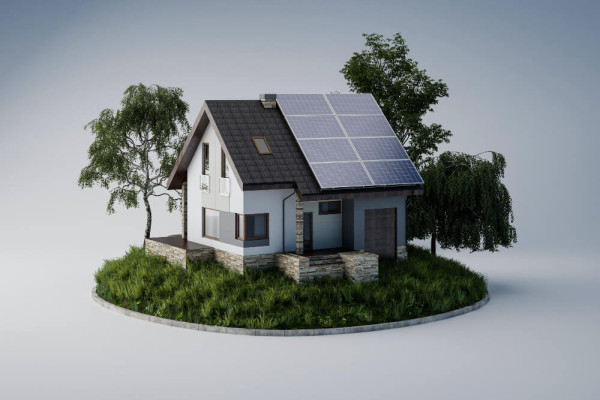
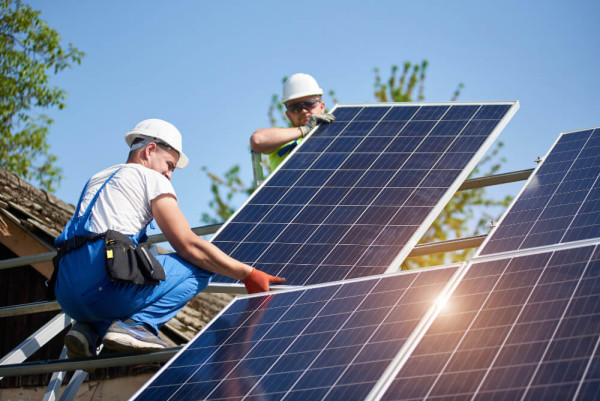
Investing in solar panels means weighing the initial cost against the long-term benefits. Financially, solar panels can lead to significant savings on your monthly energy bills, often covering the initial investment within a few years. With energy prices on the rise in the UK, generating your own electricity provides a buffer against unpredictable price hikes. Plus, you might even be able to sell excess energy back to the grid, adding an extra source of income.
From an environmental point of view, solar panels are definitely a worthwhile investment. Switching to renewable energy is essential in our efforts to tackle climate change. Every home that goes solar reduces its carbon footprint, helping to create a more sustainable future. This greener approach doesn’t just benefit the planet—it can also make your property more appealing to environmentally-conscious buyers, making solar panels a great addition for both your finances and the environment.
Get In Touch 0203 193 8888
0203 193 8888Take the first step towards clean, sustainable energy and request a quote today.
Get In Touch 0203 193 8888
0203 193 8888Installing solar panels is a big step towards a more sustainable and eco-friendly home. However, the installation process requires careful planning and expertise to make sure the system works well and lasts for years. The first step is a detailed site assessment, where professionals look at the roof’s tilt, orientation, and any potential shading issues. In the UK, south-facing roofs are best, but thanks to advances in technology, even east and west-facing roofs can still generate a lot of electricity. It’s also important to make sure the roof is in good condition and can support the weight of the panels over time.
Once the assessment is complete, the installation begins. First, mounting brackets are fixed securely to the roof to provide a stable base for the panels. Then the panels are attached, and the wiring and inverters are set up. The inverters are crucial because they convert the direct current (DC) from the panels into alternating current (AC), which is used by your home. The final steps involve connecting the system to your home’s electricity supply and, often, to the grid. Once everything is set up, the system is tested to ensure everything is working properly. It’s also important for homeowners to know how to monitor and maintain their system after installation. A well-installed solar system in the UK can start saving you money immediately, especially on sunny days, with noticeable reductions in your energy bills.
Get In Touch 0203 193 8888
0203 193 8888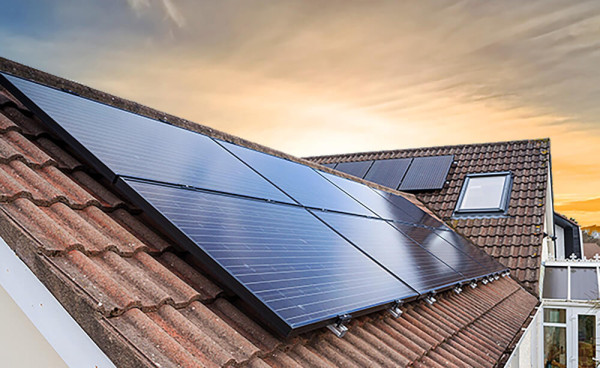
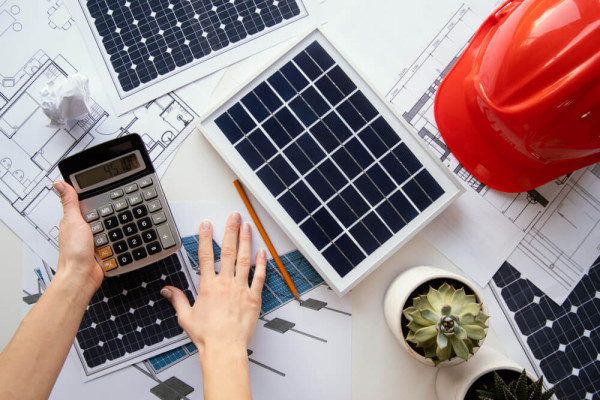
Investing in solar panels for your home offers more than just environmental benefits—it can also save you a lot of money. Here’s a breakdown of the financial advantages:
1. Lowered Monthly Bills: Once your solar system is up and running, you’ll rely less on grid electricity, which can lead to significant savings on your monthly energy bills. Some homeowners even eliminate their electricity bills entirely.
2. Feed-in Tariffs: In some cases, you can sell excess energy back to the grid, helping to offset the cost of your system and potentially making a profit over time.
3. Long-term Price Security: Generating your own power means you’re less affected by rising energy prices, offering more stability in your monthly expenses.
4. Tax Benefits: The UK government has previously offered tax incentives for homeowners who switch to solar energy, adding to the financial appeal.
5. Increased Home Value: Homes with solar panels often sell for higher prices, as buyers appreciate the long-term savings on energy bills and the eco-friendly benefits.
Get In Touch 0203 193 8888
0203 193 8888
Our membership with HIES means your money is covered by a bona fide insurance-backed guarantee from point of sale to two post-installation.

We only use tried and tested suppliers, so you know your investment is protected for years to come.

Our commitment to you is that we will only use the right people for the job. So you have peace of mind knowing that our tradespeople are some of the best.
The combination of solar panels and electric vehicles (EVs) offers a fantastic opportunity for homeowners wanting to live more sustainably. With solar panels, you can harness the sun’s energy not only to power your home but also to charge your EV, creating a smooth, eco-friendly energy loop. This approach helps reduce your carbon footprint, allowing you to drive in a more sustainable way while relying less on fossil fuels. If you are interested in partnering your panels with a EV Charger Installation then be sure to reach out today.
From a financial perspective, solar-powered EV charging is a game-changer. EVs are already cheaper to run than petrol or diesel cars, but when combined with solar panels, the savings are even greater. By generating your own electricity, the cost of charging your car drops significantly, making your cost-per-mile much lower compared to traditional fueling methods. With this setup, you’re also less affected by rising fuel prices and shortages, keeping your EV charged and ready to go whenever you need it.
The benefits of pairing solar panels with EVs go beyond just savings and sustainability. It also adds convenience and resilience to your home, allowing you to drive cleanly, save on energy bills, and never worry about fuel supply issues - being able to charge your EV whenever. Together, solar panels and EVs are leading the way toward the future of transportation and energy, taking us closer to self-sufficient, greener living.
Get In Touch 0203 193 8888
0203 193 8888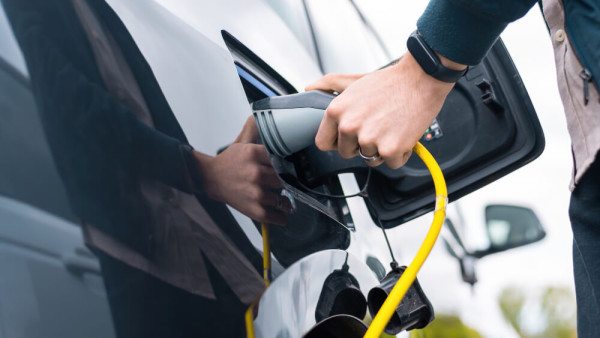
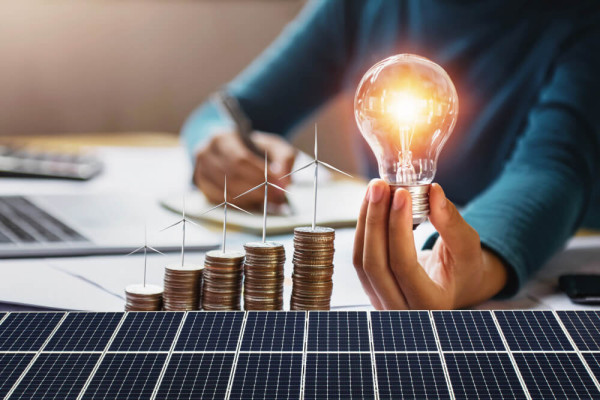
The financial impact of installing solar panels can be quite significant, offering homeowners real savings over time. With the rising cost of electricity in the UK, many homeowners find that their solar installations pay for themselves relatively quickly, especially when they take advantage of available grants, incentives, and feed-in tariffs. As energy prices continue to rise, the savings between solar energy and traditional grid power are likely to grow, making this investment even more attractive.
That said, the exact savings depend on several factors, such as the size and efficiency of the system, the location of the home, and how much energy the household uses. On average, homeowners in the UK see reductions of between 50% and 75% in their annual electricity bills. Over the typical 25 to 30-year lifespan of solar panels, these savings can add up to tens of thousands of pounds, making the investment a smart financial decision.
Get In Touch 0203 193 8888
0203 193 8888* Based on Current Energy Pricing

1 - 2
bedrooms
3 - 4
bedrooms
5+
bedroomsSavings without Battery
Yearly Bill Saving
£-
SEG Payment
£-
Total
£-
Savings with Battery
Yearly Bill Saving
£-
SEG Payment
£-
Total
£-
The market is inundated with various solar panel brands and models, making the selection process daunting for homeowners. However, the best panels share certain commonalities:
While the initial research may seem overwhelming, the rewards of selecting the best solar panels for residential use—both in terms of financial savings and efficient performance—are profound.
Get In Touch 0203 193 8888
0203 193 8888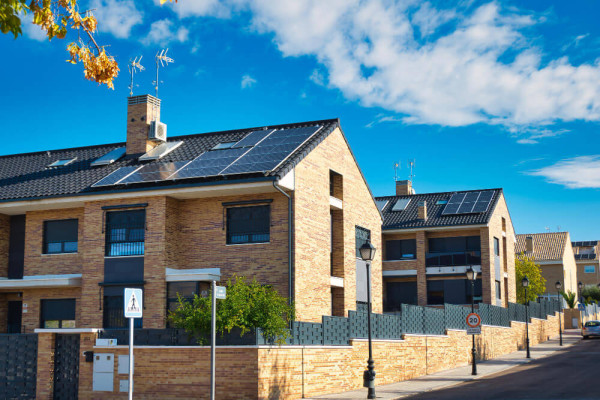
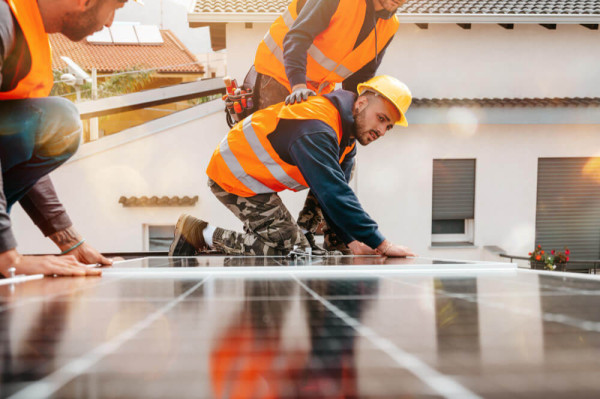
Making sure your solar panel system runs at its best isn’t just about the installation—it’s about keeping it monitored and maintained over time. Here’s why that’s important:
1. Real-time Monitoring: Modern solar systems come with digital tools that let homeowners track energy production and usage in real time. This makes it easier to spot any issues or inefficiencies straight away.
2. Routine Inspections: Regular checks help spot problems early, whether it’s minor dirt on the panels or bigger issues with the system.
3. Protection Against the Weather: The UK’s weather can affect how well your panels perform. Regular maintenance helps protect them from rain, snow, and debris, ensuring they keep working efficiently.
4. Longevity: Taking care of your system and fixing any issues quickly can extend the lifespan of your solar installation, ensuring you continue to benefit from it for many years.
Get In Touch 0203 193 8888
0203 193 8888